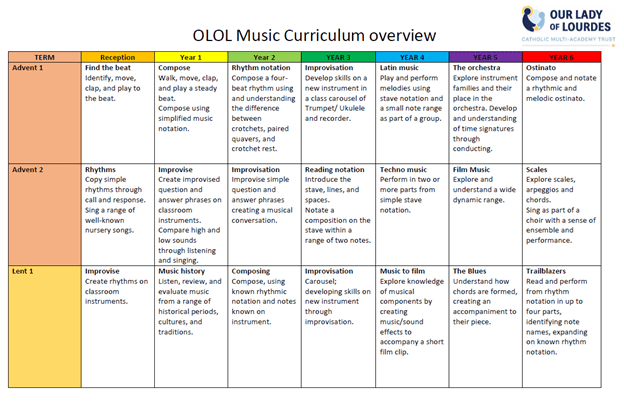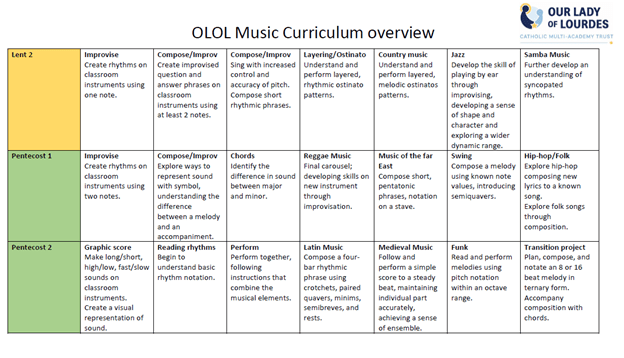National Curriculum Programme of Study
National curriculum in England: music programmes of study – GOV.UK (www.gov.uk)
School Music Development Plan Summary 2024-25
Intent
At St Norbert’s, we believe music should be an enjoyable experience for pupils and teachers. Children participate in a range of musical experiences, building up their confidence at the same time. They develop their understanding of rhythm and pitch and learn how music is structured, as well as learning technical vocabulary for these elements. As children’s confidence builds, they enjoy the performance aspect of music. Children at St Norbert’s experience listening to music from different cultures and eras and have listening opportunities in other areas of the curriculum.
Implementation
Music is taught by a subject specialist from the Our Lady of Lourdes CMAT Music service.
Music is highly valued at St. Norbert’s – all children in KS2 will learn to play an instrument and have the opportunity to sing throughout their journey through our school.
Whole Class Music Tuition starts in Y3 led by the Our Lady of Lourdes Catholic Academy Trust Music Service. All children will learn to play a range of percussion and tuned instruments such as Ukulele, Trombone, Recorder, Keyboard.
Music is taught as a discrete subject but also links to other subjects across the curriculum. Areas of learning, such as times tables in maths, vocabulary in languages and movement in dance can all incorporate different elements of music. RE and art particularly lend themselves to responding creatively to a piece they hear. Collective Worship, Liturgies, Services and Masses allows the children opportunities to develop their singing skills and gain an understanding of how ensembles work. Performances such as Christmas Nativity, Carol Concert, Easter Play and Year 6 Leavers Play demonstrate that music is important to the life of the school. Extracurricular activities, such peripatetic music lessons, also provide children with experience of making music. When they arise, we take opportunities to develop links with outside agencies and experts to enrich provision such as the Lincolnshire Music Service.
Impact
The impact of teaching music will be seen across the school with an increase in the profile of music. Whole-school and parental engagement will be improved through performances, extracurricular activities and opportunities for wider learning. Participation in music develops wellbeing, promotes listening and develops concentration. We want to ensure that music is loved by teachers and pupils across school, encouraging them to want to continue building on this wealth of musical ability, now and in the future.







